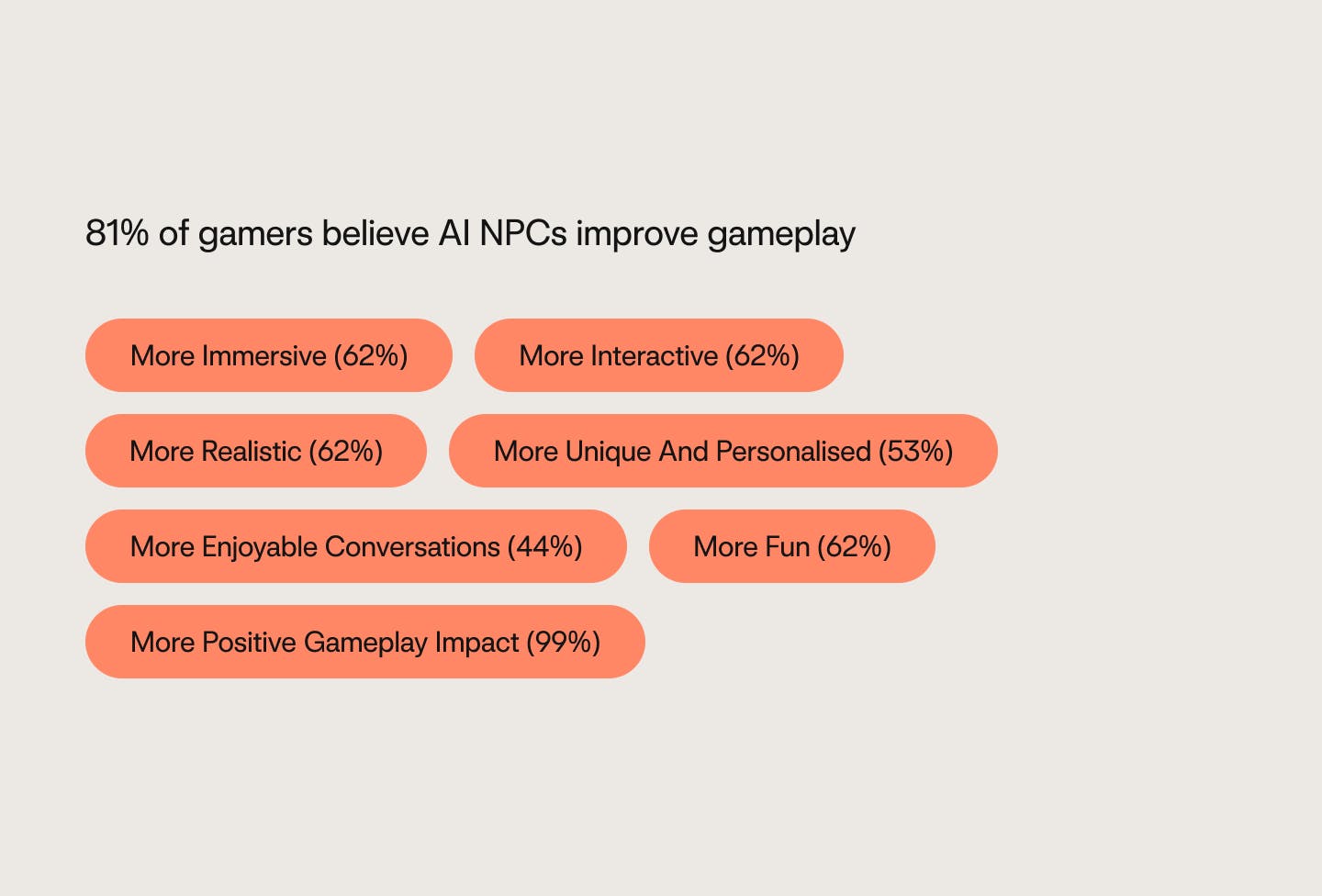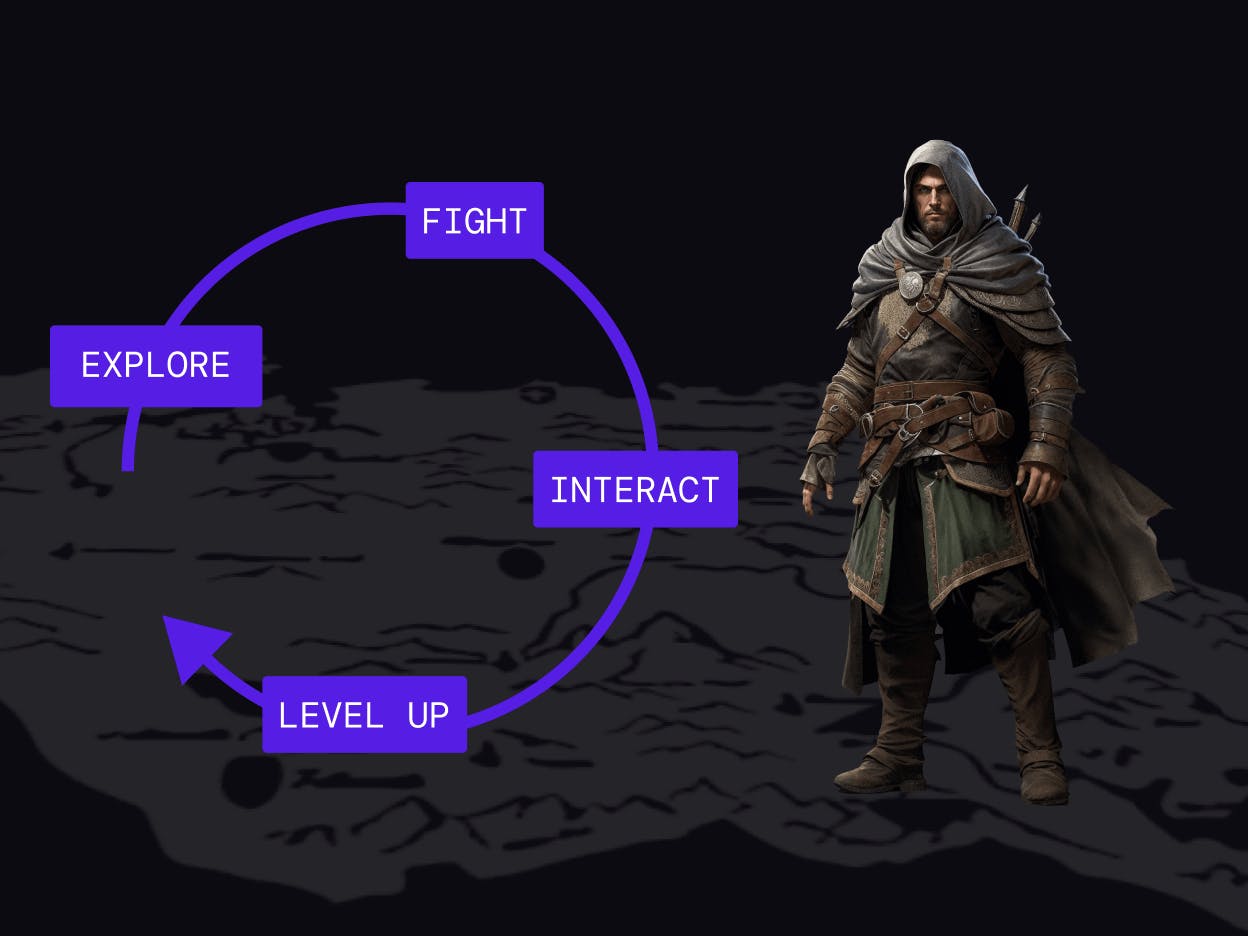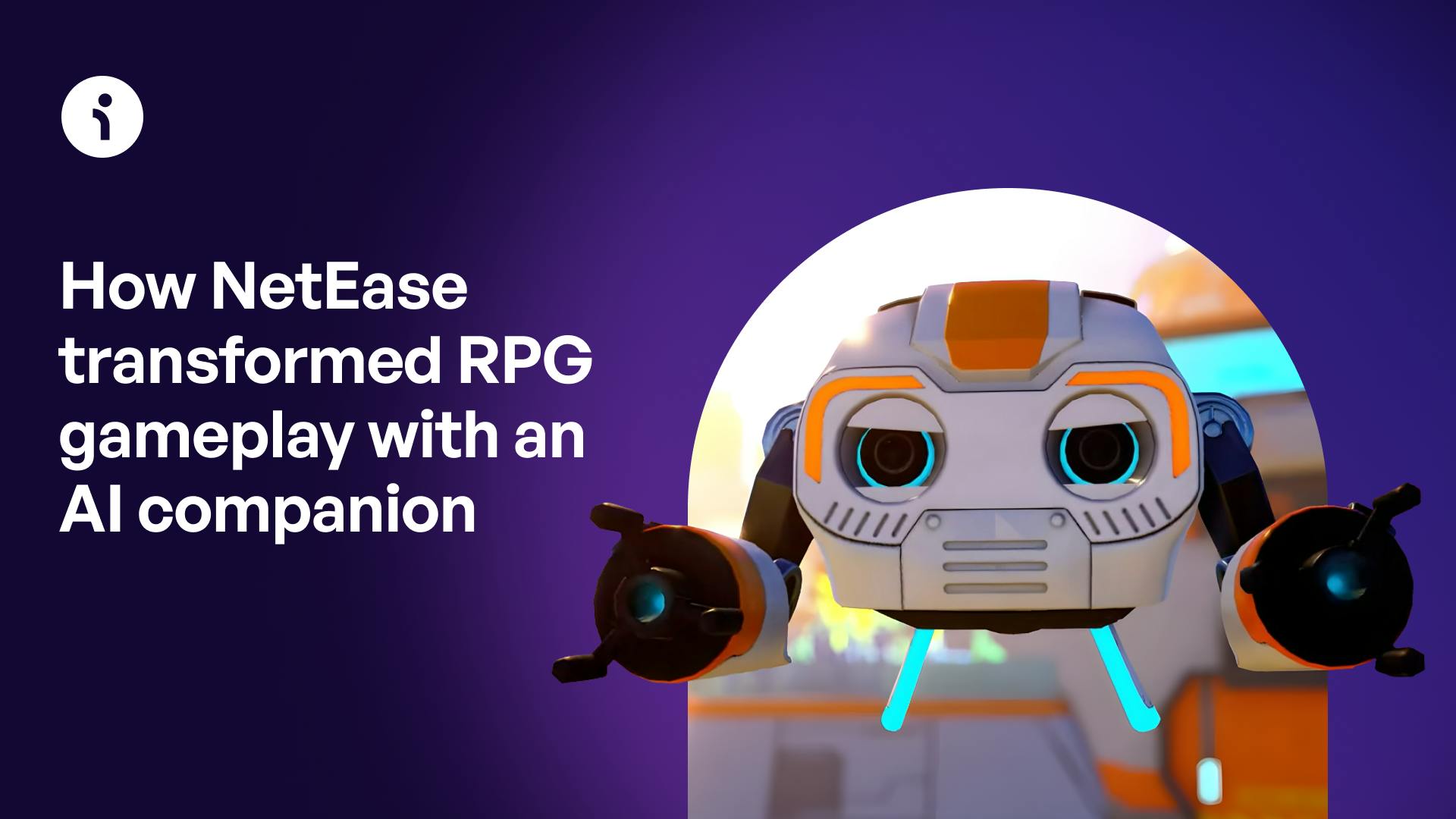Level up with AI NPCs
Increase player engagement and introduce novel gameplay dynamics with Inworld Engine. AI NPCs can learn and adapt, deliver nuanced performances, perceive the world around them, and autonomously initiate actions based on players' decisions.
Get started with Inworld

Give players what they want
We surveyed 1,000 gamers and found that NPCs matter to gamers – but they're frustrated by repetitive dialogue and static interactions. 99% of gamers think AI NPCs improve gameplay. 81% would pay more for games with AI NPCs.

Enhance core game loops
- Responsive gameplay: With Inworld, NPCs transform into core game mechanics. How players interact with characters can determine whether they progress in the game and unlock the next level.
- Player-centric narrative: Cast players as co-creators by adding NPCs who can customize the narrative in real-time with each playthrough. Unlock meaningful choices, unique consequences, branching paths, and infinite replayability.
- Dynamic worlds: Create games where players’ actions transform the world around them. Let players decide whether to make an NPC their best friend – or mortal enemy. Trigger cascading consequences that influence in-game social dynamics or uncover new quests and storylines.

Generate more revenue
Our game dev survey found that nearly 3-in-4 are excited about AI NPCs. Also, 54% of devs think their studios will adopt them and 56% believe they’ll generate more than 40% ROI. Find out how they plan to implement them!
Customer stories
Engine Features
Configurable Safety
Configurable Safety
Configure the way your AI NPCs speak, whether your game is rated E or M. While Inworld allows flexibility around topics like profanity, violence, adult topics, alcohol, substance use, politics and religion, we never permit things like hate speech or encouraging self-harm.
4th Wall
4th Wall
An AI character that breaks character can hurt immersion if the dialogue is not plausible or draws on knowledge that the character shouldn't have. 4th Wall ensures that characters only draw from knowledge that exists in their world, creating a more immersive story-telling and gameplay.
Knowledge
Knowledge
Input "Personal Knowledge" to control the information their characters should or shouldn't know. Use "Common Knowledge" to define knowledge that multiple characters have, like shared lore, world contexts, and backgrounds.

Player Profiles
Player Profiles
Gather information about players and allow your NPCs to take this into account when forming interactions. You can include fields such as name, role, or gender. You can also add custom fields tailored to your game, such as levels or factions.
Relationships
Relationships
Give your players the ability to build relationships with NPCs by configuring the Relationship Fluidity setting of each character. By adjusting the relationship settings, you can create some characters who are eager to become your best friend and others who want to stubbornly remain your enemy.





